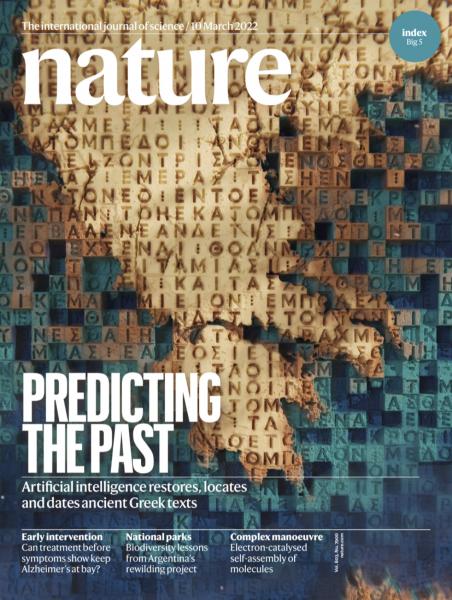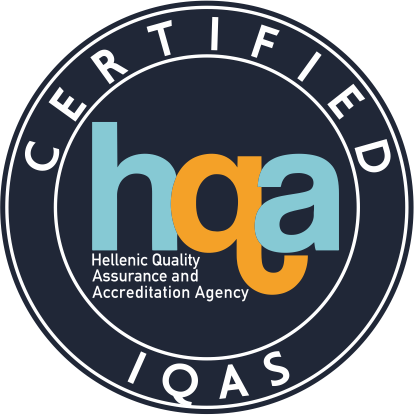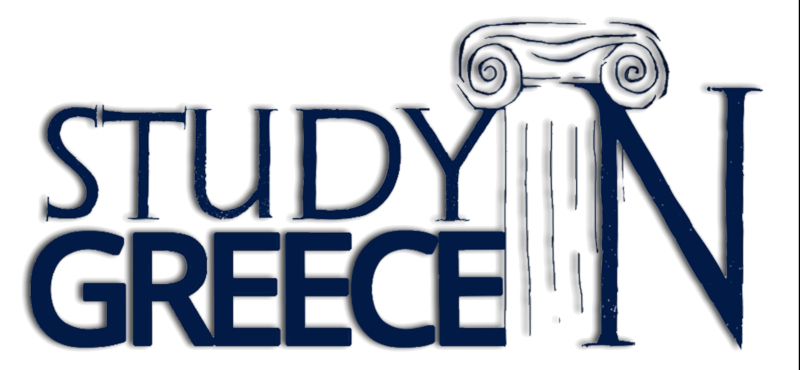Prof. Ion Androutsopoulos and researchers John Pavlopoulos and Marita Chatzipanagiotou, contributed to a significant work published in Nature journal
"This inscription (Inscriptiones Graecae, volume 1, edition 3, document 4, face B (IG I3 4B)) records a decree concerning the Acropolis of Athens and dates to 485/4 BC. Marsyas, Epigraphic Museum, WikiMedia CC BY 2.5."
Predicting the past with Ithaca
Restoring, placing, and dating ancient texts through collaboration between AI and historians
Prof. Ion Androutsopoulos and researcher John Pavlopoulos, from AUEB's Department of Informatics, along with Marita Chatzipanagiotou, student (now graduate) of AUEB's MSc "Digital Methods for the Humanities", are co-authors of the paper published on 9/3/2022 in Nature:
Predicting the past with Ithaca
Restoring, placing, and dating ancient texts through collaboration between AI and historians
Yannis Assael [1], Thea Sommerschield [2,3]
Brendan Shillingford [1], Mahyar Bordbar [1], John Pavlopoulos [4], Marita Chatzipanagiotou [4], Ion Androutsopoulos [4], Jonathan Prag [5], Nando de Freitas [1]
[1] DeepMind, United Kingdom; [2] Ca’ Foscari University of Venice, Italy; [3] Center for Hellenic Studies, Harvard University, USA; [4] Athens University of Economics and Business, Greece; [5] University of Oxford, United Kingdom
"...In line with DeepMind’s mission of solving intelligence to advance science and humanity, we collaborated with the Department of Humanities of Ca' Foscari University of Venice, the Classics Faculty of the University of Oxford, and the Department of Informatics of the Athens University of Economics and Business to explore how machine learning can help historians better interpret these inscriptions – giving a richer understanding of ancient history and unlocking the potential for cooperation between AI and historians.
In a paper published today in Nature, we jointly introduce Ithaca, the first deep neural network that can restore the missing text of damaged inscriptions, identify their original location, and help establish the date they were created. Ithaca is named after the Greek island in Homer’s Odyssey and builds upon and extends Pythia, our previous system that focused on textual restoration. Our evaluations show that Ithaca achieves 62% accuracy in restoring damaged texts, 71% accuracy in identifying their original location, and can date texts to within 30 years of their ground-truth date ranges. Historians have already used the tool to reevaluate significant periods in Greek history..."
Read the paper and find more information:
Paper: https://www.nature.com/articles/s41586-022-04448-z
Video: https://youtu.be/rq0Ex_qCKeQ
Blog: https://deepmind.com/blog/article/Predicting-the-past-with-Ithaca
Blog in Greek: https://storage.googleapis.com/deepmind-media/DeepMind.com/Blog/restoring-and-attributing-ancient-texts-using-deep-neural-networks/Ancient_Texts_(Greek).pdf






